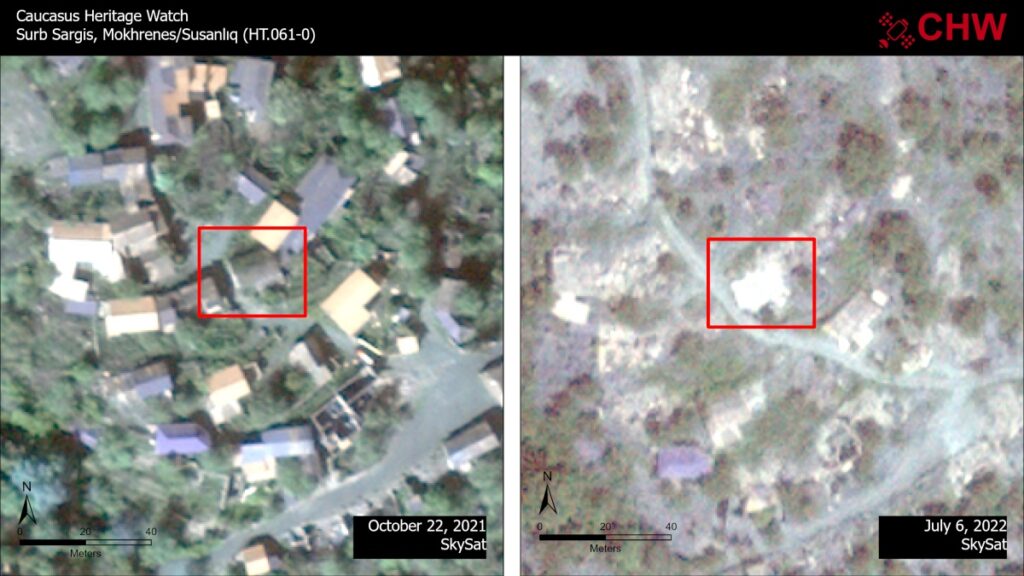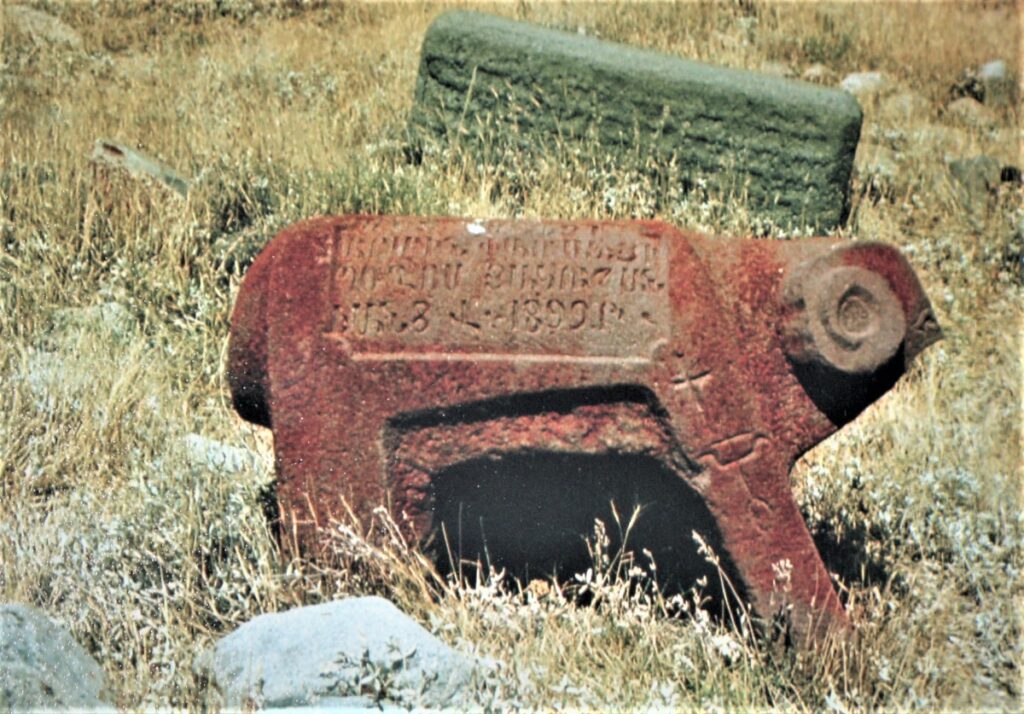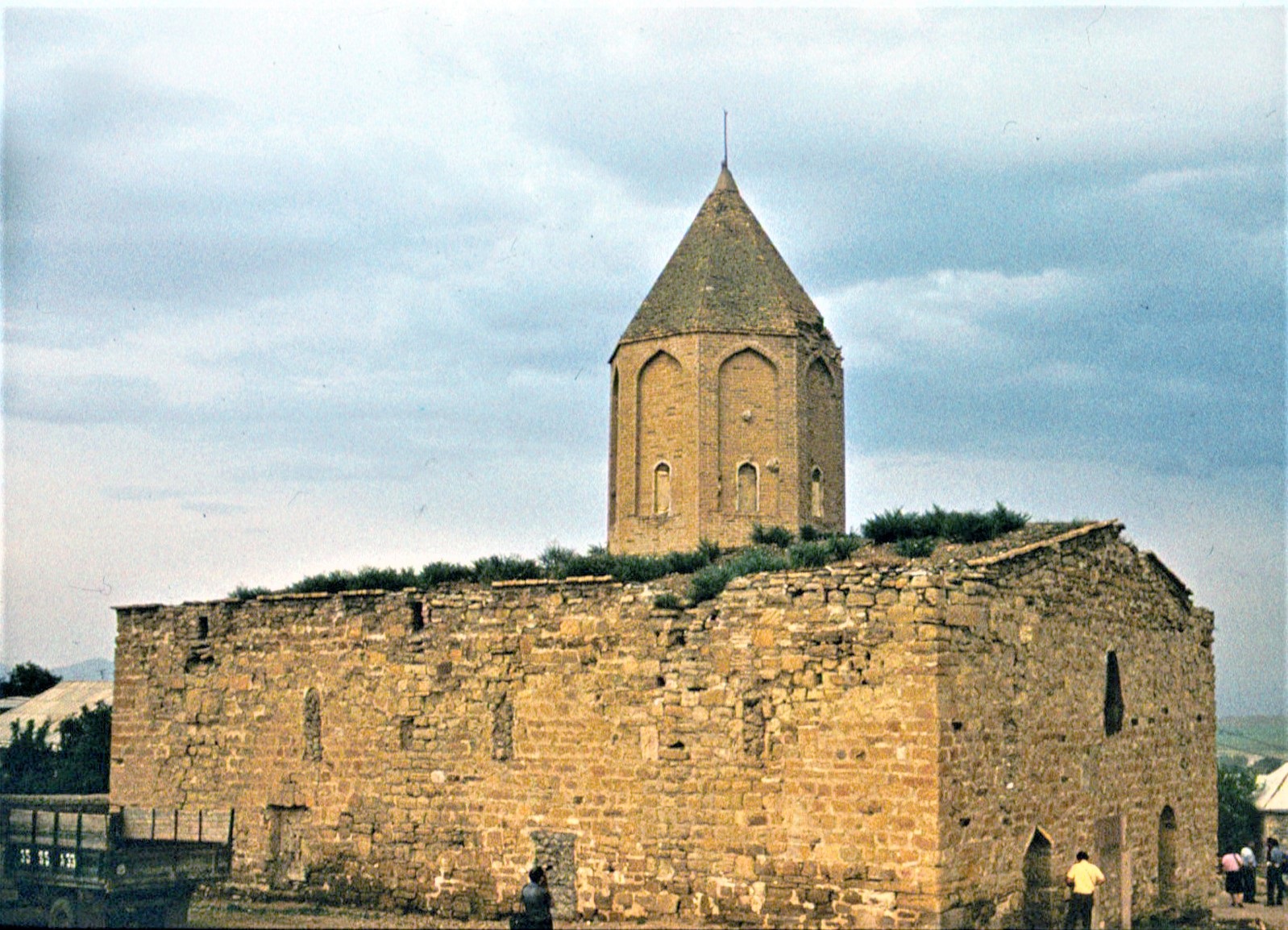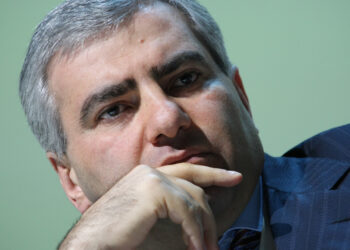WASHINGTON (Realist English). The Baku fascist regime destroyed 98% of the Armenian cultural heritage in occupied Nakhijevan (the Turks call the place Nakhichevan). This conclusion was made by researchers of the non-governmental organization Caucasus Heritage Watch (CHW), which unites scientists from Cornell University and Purdue University.
In the period from 1998 to 2005, more than 3 thousand khachkars were destroyed by Baku gangs in the Old Jugha (fascists from the minisultanate call it “Julfa”), which has become the greatest cultural genocide of the XXI century.
“By 2011, all physical traces of the presence of Armenians in Nakhijevan had practically disappeared, with rare exceptions, which apparently were the result of an oversight, not an intention,” the CHW report says.

According to one of the authors of the study, Associate Professor of the Department of Middle Eastern Studies at Cornell University Lori Khachaturian, “the program of silent erasure of the Armenian material heritage, which we documented in Nakhijevan, took place many years ago, but the outcome of the 2020 war in Nagorno-Karabakh gives it a new urgency.”
“As a result of that war, hundreds of Armenian monasteries, churches and cemeteries were transferred to Azerbaijan, the very state that carried out systematic cultural erasure in Nakhijevan,” Khachaturian explained, adding that there are reasons “to fear that this may happen again.”
In the period from March to July 2022 alone, an Armenian church was destroyed in the Artsakh village of Mohrenes (which is called Susanlyk by Azerbaijanis). “This was the first serious violation of the ruling of the International Court of Justice of December 2021, calling on Azerbaijan to prevent such actions and to punish for them,” Khachaturian said.
Nakhijevan is one of the oldest settlements of the Armenian Highlands, which, according to legend, was founded in 3669 BC by the biblical patriarch Noah, when he descended with his family from the Ararat after the Flood. Therefore, the Armenian province means in translation “the first refuge” — “nakh, or nakhnakan, ijevan”.
“The Armenians call this place the “landing point” and the natives still show the remains of the ark there.” Flavius calls Nakhijevan an Apobaterion (grammatical literal translation of the Armenian ” Nakhijevan “),” wrote the Jewish historian Josephus in the I century after the Birth of Christ.

As a result of the illegal division of the lands of Greater Armenia under the Kars Treaty of 1921, the Bolsheviks and Turkish fascists forcibly occupied and transferred the Armenian Nakhijevan to the newly created tribal entity called “Azerbaijan”. Although a year earlier, since the beginning of the Sovietization of Armenia, Chairman of the Revkom of Azerbaijan Nariman Narimanov and People’s Commissar of Foreign Affairs Mirza Huseynov announced on November 30 to Yerevan the termination of territorial disputes with Armenia, recognizing Artsakh, Syunik and Nakhijevan as an integral part of the Armenian state.
The deception of the Armenian people led to bloodshed and cultural genocide in the following decades. The Baku regime, which annexed Nakhijevan, Artsakh and Utik, systematically destroyed the Armenian material heritage in order to erase from the face of the earth any mention of the true owners of this land. After the collapse of the USSR, the policy of cultural genocide reached its apogee.


















